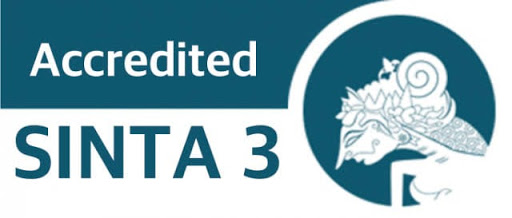The Influence of Using the Google Play Books Application on Interest in Reading E-Books among @literarybase Account Followers
DOI:
https://doi.org/10.30742/tb.v9i1.4122Abstract
Purpose Research. The low interest in reading among the public is still a problem for Indonesia as a developing country. Technological advances in the direction of digital have allowed e-books to become a new reading medium. This condition shifts reading culture from printed books to digital media. The emergence of e-books is expected to be a medium that attracts readers and increases people's interest in reading. This study will discuss the effect of applying Google Play books on the interest of reading e-books of @literarybase account followers. The community @literarybase is taken up because it is an important forum for encouraging reading interest for its members. Research Methods. This study uses a quantitative method. Data measurement was conducted using a questionnaire on a Likert scale of 1-5, which was distributed to 150 respondents. Data Analysis. The data obtained will be processed using the Structural Equation Modeling (SEM) method. The data processing analysis tool will use the Smart-PLS application version 3.0. Result. Based on the data that has been processed, using the Google Play Books application can significantly affect the interaction on the @literarybase account. In addition, the interaction on the @literarybase account significantly affects the interest in reading e-books. The use of the Google Play Book app among @literarybase account followers significantly affects their interest in reading e-books. Conclusion. It can be concluded that the use of the Google Play Book application among the followers of the @literarybase account has a significant influence on the interest in reading e-books. Meanwhile, an interesting finding from this study is that online reading communities such as @literarybase accounts can mediate the use of the Google Play Book application in increasing the reading interest of its members.
Keywords: reading interest; e-books; google play books; online reading community
References
Abdillah, Willy, and Jogiyanto. (2015). Partial Least Square (PLS): Alternative structural equation modeling (SEM) in business research. Yogyakarta: Andi Offset.
Arwati, A., and A. M. Oktaviani. (2023). The effect of using comic media to increase students' interest in reading in social sciences learning. Pelita Calistung Journal, 4(1): 121–38.
Bunga, Sakawuni Maghfira Firdestia, and Margareta Aulia Rachman. (2022). The role of the @literarybase twitter account in increasing followers' reading interest. Periodicals of Library and Information Science, 18(1):98–112. Doi: 10.22146/bip.v18i1.2375.
Cahaya, Ismilia Nur, Yunus Abidin, and S. Nailul Muna Aljamaliah. (2022). The effect of using the let's read application on class v elementary school students' interest in reading. Journal of Education and Learning, 11(9): 1520–29. Doi: 10.26418/jppk.v11i9.58042.
Etnanta, Yunar Chaerdinan, and Ana Irhandayaningsih. (2017). The influence of smartphone use on students' interest in reading at sma negeri 1 semarang. Journal of Library Science, 6(1): 371–80.
Ghozali, Imam, and Latan Hengky. (2014). Partial Least Squares: Concepts, techniques, and applications using the smartpls 3.0 program. Semarang: Diponegoro University Publishing Agency.
Hair, Joseph, Thomas Hult, Christian Ringle, and Marko Sarstedt. (2017). A primer on partial least squares structural equation modeling (PLS-SEM). (2 th ed). Los Angles: SAGE Publication.
Hamid, Rahmad Solling, and Suhardi M. Anwar. (2019). Variant based structural equation modeling (SEM): Basic Concepts and Applications with the smartpls 3.2.8 Program in Business Research, Vol. 6. Jakarta: Indonesian Writers Incubator.
Hendrayani, Ade. (2017). Increasing reading interest and reading ability of low grade students through the use of reading corners. Indonesian Research Journal, 17(3):13. Doi: https://doi.org/10.17509/jpp.v17i3.9617.
Kala, Ynez, and Ruth Mei Ulina. (2022). The influence of using the ipusnas application on @literarybase followers on twitter on interest in reading digital books. Medium, 10(1): 200–213. Doi: 10.25299/medium. 2022. vol10(1).9166.
Kurniawan, Agus. (2024). Analysis of determinant factors in the implementation of follow-up to BP RI audit results on the performance of the west papua provincial government. Journal of Regional Economic & Financial Studies, 9(1): 91. Doi: https://doi.org/10.52062/keuda.v9i1.3634.
Lestari, Sudarsri, and Erisy Syawiril Ammah. (2021). Digital literacy education through google play books. Again, 01 (05).
Napitulu, Ester Lince. (2023). Indonesia's 2022 PISA scores drop, rankings rise. Kompas.Id. Retrieved March 7, 2024 (https://www.kompas.id/baca/humaniora/2023/12/05/skor-pisa-2022-indonesia-turun-peringakt-naik).
Saefullah, Ibn. (2017). Create independent digital books. Indramayu: Kainoe Books.
Saputra, Galih Agus. (2020). E-book and audio book sales increase during the pandemic.†Indonesian media. Retrieved March 7, 2024 (https://mediaindonesia.com/weekend/361901/penjualan-e-book-dan-audio-book-meningkat-selama-pandemi).
Sarjono, Haryadi, and Winda Julianita. (2015). Structural equation modeling (SEM): An introduction, applications to business research. Jakarta: Salemba Empat.
Downloads
Published
How to Cite
Issue
Section
License
Once an article was published in the journal, the author(s) are:
- granted to the journal right licensed under Creative Commons License Attribution that allows others to share the work with an acknowledgment of the work's authorship.
- permitted to publish their work online in third parties as it can lead wider dissemination of the work.
- continue to be the copyright owner and allow the journal to publish the article with the CC BY-NC-SA license
- receiving a DOI (Digital Object Identifier) of the work.


.png)

